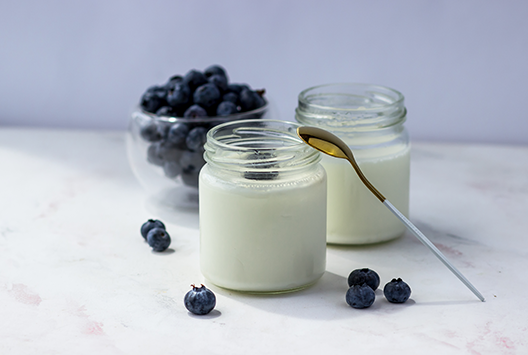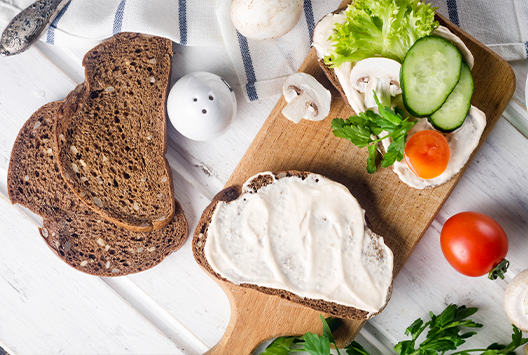
Greek Yoghurt: Why Is It Good For You? - Part 4
Similar
Known for its multitude of health advantages, Greek yoghurt has gained significant popularity in recent years. In our previous posts, we highlighted some of these benefits. Now you might be wondering how you can incorporate Greek yoghurt into your diet. Here are some recommendations:
Different ways to enjoy Greek yoghurt
Greek yoghurt is a delicious and nutritious dairy product that can be used in a variety of different recipes — from breakfast to dessert. Are you ready to explore the different ways you can enjoy Greek yoghurt? Let’s go:
1. For breakfast
Greek yoghurt is a great breakfast option, as it is rich in protein, low in calories and carbohydrates, and packed with calcium. One of the most popular ways to enjoy Greek yoghurt for breakfast is to combine it with fresh fruit and granola. You can also add honey, nuts, or seeds to your yoghurt bowl for added flavor and nutrition.
2. As a snack
Greek yoghurt makes for a perfect snack option, as it is rich in protein and can keep you full for longer periods. You can add a dollop of Greek yoghurt to your fruit or vegetable snacks, or use it as a dip for your crackers or chips. Greek yoghurt can also be used as a base for dips and spreads, such as tzatziki, which is a popular Greek dip made with Greek yoghurt, cucumber, garlic, and herbs.
3. In a salad dressing
Greek yoghurt can be used as a healthier alternative to traditional salad dressings, which are often high in calories and unhealthy fats. To make a simple Greek yoghurt dressing, mix Greek yoghurt with lemon juice, olive oil, and your favorite herbs and seasonings. This dressing is perfect for green, pasta, and vegetable salads.
4. As a marinade
Greek yoghurt can be used as a marinade for meat, fish, and vegetables. The lactic acid in Greek yoghurt helps tenderize the meat and infuse it with flavor. To make a Greek yoghurt marinade, mix it with your favorite herbs and spices, such as garlic, cumin, and paprika. Marinate your meat, fish, or vegetables for at least an hour before cooking for the best results.
5. As a dessert
Greek yoghurt is a delicious and healthy alternative to traditional desserts, which are often high in sugar and unhealthy fats. You can use Greek yoghurt as a base for healthy desserts, such as fruit parfaits, smoothie bowls, and frozen yoghurt. To make a simple fruit parfait, layer Greek yoghurt with fresh fruit and granola in a glass. For a frozen yoghurt dessert, mix Greek yoghurt with frozen berries and honey, and freeze for a few hours before serving.
You can never go wrong with Greek yoghurt
After reading the above, we hope we’ve inspired you to get creative with your Greek yoghurt. And as a side note, always make sure to get your yoghurt from a trusted source.
At Baladna, we believe in delivering the best and freshest dairy products. We are proud to offer a wide range of dairy products that are 100% authentic, fresh, and high-quality. Our farm is dedicated to providing our customers with the best dairy experience, from our farm to your table. Try Baladna’s Greek yoghurt today!



